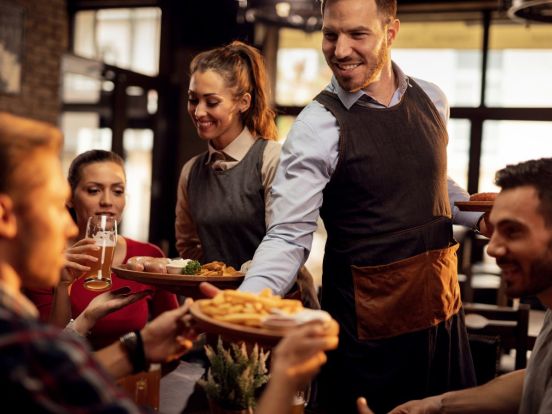With Easter weekend falling on Friday 30 March to Monday 2 April there are some alcohol licensing and trade restriction foodservice providers need to know. Whether you choose to open your business over Easter or not, there are requirements for employers to follow regarding making the necessary arrangements with staffing and any restrictions of trade that may apply.
Here is a quick guide to days impacted over the Easter weekend: –
Good Friday – is a public holiday and also has restrictions on the sale of alcohol
Saturday – is a normal trading day
Easter Sunday – is not a public holiday but has restrictions on the sale of alcohol. Employees have the right to refuse to work under the Shop Trading Amendment Act 2016.
Easter Monday – is a public holiday and there are no restrictions on the sale of alcohol.
Easter Sunday Trading impacts restaurants, bars and cafes
The Shop Trading Amendment Act 2016 enables local councils to decide whether shops in their district (this includes restaurants, bars and cafes) can open on Easter Sunday.
Employees have the right to refuse to work on Easter Sunday.
Under the Shop Trading Amendment Act 2016 it states that employees cannot be forced to work on Easter Sunday. Employers must have asked employees four weeks in advance if they would wish to work on Easter Sunday and they have the right to decline.
Where employees are not willing to work on Easter Sunday, the employer may consider offering something extra for employees to make it more worthwhile. For example, the benefits could be:
- a greater pay rate for the day
- a day in lieu
- work reduced hours or half day shifts, or
- other arrangements that both the employer and employee can agree to.
Open to trade on Easter Sunday
The employee will be paid their usual pay for working on a Easter Sunday (unless the employee and employer agree to a greater rate of pay for this day). The employee will not be eligible for an alternative holiday because Easter Sunday is not a public holiday.
Easter Sunday is not a public holiday and if the employee does not work Easter Sunday because the business closes (perhaps as a result of Sale of Alcohol restrictions) then whether employees get paid or not depends on their employment agreements.
For full time employees who are guaranteed a fixed number of hours the employer will need to reach agreement with them beforehand about rescheduling hours elsewhere or pay them for the hours lost due to the closure irrespective. Part time and casual employees are easier as they should simply be able to be rostered off on that day.
Restrictions on the sale and supply of alcohol still applies on Easter Sunday
Note that shop trading provisions allowing a bar, cafe or restaurant to open on restricted trading days to sell goods such as food, have no effect on the conditions for the sale and supply of alcohol on these days (including Easter Sunday). The Sale and Supply of Alcohol Act 2012 continues to apply and premises selling and supplying alcohol (such as bars and licensed cafes and restaurants) must comply with it.
This means they are not permitted to sell alcohol on restricted trading days unless this is with a meal. Restrictions for licensed premises on Good Friday and Easter Sunday.
Sale of alcohol restrictions apply on all of Good Friday and Easter Sunday
The Sale and Supply of Alcohol Act prohibits the sale or supply of alcohol to anyone from any licensed premises, (including restaurants and entertainment venues) on Good Friday and Easter Sunday other than to persons on the premises to dine, living on the premises as a lodger or as an employee (in respect of hotels) or where a special licence has been obtained.
This means that no-one may be sold or supplied alcohol on any licensed premises on these days unless they are on the premises to dine.
A person is not present on licensed premises to dine if he or she is on the premises more than an hour before he or she starts (or is due to start) eating a meal, or more than an hour after he or she finishes eating a meal. To clarify, a meal must be substantial rather than just snack food.
In respect of hotels and taverns, once dining is completed and any alcohol purchased while dining has been consumed, persons cannot remain on the premises even if they are not consuming alcohol. This is because persons cannot be on hotel and tavern premises outside licensed hours, except from 6am until licensing hours begin for the day. Licensed restaurants, conveyances and entertainment venues, may have persons on the premises anytime but must restrict the sale and supply of alcohol on these days to persons on the premises to dine and within licensing hours.
Accordingly, alcohol sale and supply for all types of licence must cease at midnight on each of Thursday 29 March and Saturday 31 March unless one of the above exceptions applies. This is because Good Friday and Easter Sunday have restrictions on the sale of alcohol effective from midnight.
Off premise licences are also not able to sell or supply alcohol from the premises on Good Friday or Easter Sunday. However, off-licences where wine is produced on the premises may be sold and supplied within licensing hours on Easter Sunday. For more detailed information : www.hospitalitynz.co.nz








